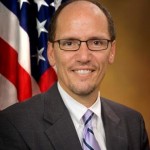Big Win for Plaintiffs in Dukes v. Wal-Mart
Looks like a big win for the plaintiffs in the gigantic employment discrimination class action in Dukes v. Wal-Mart (a group of some 2 million former and current female employees have sued over lack of promotion opportunitie). The 9th Circuit en banc, 6-5 with four separate opinions and 137 pages, affirmed class certification under Rule 23(b)(2) for some issues and remanded on others:
We affirm the district court’s certification of a Federal Rule of Civil Procedure 23(b)(2) class of current employees with respect to their claims for injunctive relief, declaratory relief, and back pay. With respect to the claims for punitive damages, we remand so that the district court may consider whether to certify the class under Rule 23(b)(2) or (b)(3). We also remand with respect to the claims of putative class members who no longer worked for Wal-Mart when the complaint was filed so that the district court may consider whether to certify an additional class or classes under Rule 23(b)(3).
The decision was written by Judge Hawkins, with a concurrence by Graber, one dissent by Ikuta and a separate dissent by Kozinski. The latter I am sure is fodder for a cert petition and I do believe this case is heading for a Supreme Court showdown.
Melissa Hart and I have written about how the social framework testimony of William Bielby was crucial, and properly admissible, in establishing the commonality and typicality prong for class certification.
Hat Tip: Rebecca Hamburg


